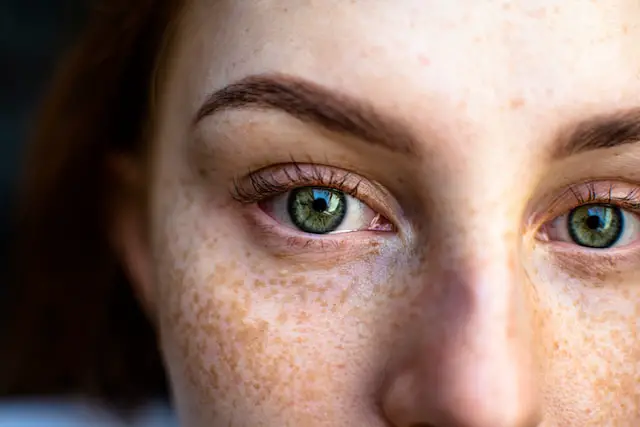How Long Does Tea Tree Oil Take To Work On Acne?
It’s normal to question whether the therapy will be effective immediately, just like with any other acne treatment. The results of tea tree, however, take a few weeks to become apparent, much like with many other acne remedies. Tea tree oil typically takes 12 weeks for your skin to start seeing results.
According to a study that appeared in the Medical Journal of Australia, for 12 weeks, a 5% tea tree oil gel and a 5% benzoyl peroxide lotion reduced the quantity and severity of acne lesions.
Tea Tree Oil: An Overview
Tea tree oil is an incredibly popular essential oil known for its numerous benefits for beauty and health. It’s extracted from the leaves of the tea tree, native to Australia. Tea oil from trees has been utilized for a long time as a traditional remedy for different illnesses, such as colds, coughs, and skin problems. Recently, it has been gaining popularity in the beauty world as a natural cure for dandruff, acne, and other hair and skin issues.
Composition and properties
Tea tree oil is made up of various compounds, including alpha-terpineol and terpinene-4-ol, as well as cineole, among others. These substances give tea tree its distinctive aroma and offer antimicrobial, anti-inflammatory, and antioxidant qualities. Terpinen-4-ol is the highest-yielding chemical found in tea tree oil and is the reason for its antifungal and antibacterial effects.
Tea tree oil is high in antioxidants, which help protect the skin from damage caused by free radicals. Free radicals are unstable substances that could cause damage to skin cells, leading to premature aging and other skin issues. By neutralizing free radicals, antioxidants keep skin healthy and youthful-looking.
Benefits of Tea Tree Oil for the Skin
Tea tree oil has many advantages for the skin because of its anti-inflammatory and antibacterial properties. It is a great treatment for skin conditions like acne, eczema, and psoriasis. Tea tree oil works by killing bacteria responsible for acne as well as reducing redness and inflammation. It also aids in removing pores and eliminating excess oil accumulated on the skin. This helps prevent breakouts from happening in the future.
Besides treating acne, tea tree oil also helps heal and soothe other skin issues. For instance, it could be used to help reduce itching and inflammation that are associated with psoriasis or eczema. It also helps accelerate the healing process of small wounds and cuts and helps prevent infections.
However, it is essential to remember that tea tree oil must be used carefully because it could irritate the skin if it is not diluted. It is advised to dilute the tea tree oil using an oil carrier, like coconut or jojoba oil, before applying it to the skin. Testing a patch before applying tea tree oil to your face is also essential to ensure that you’re not adverse to or allergic to it.
Benefits Of Tea Tree Oil For The Hair
Tea tree oil can be beneficial for the hair and scalp. It can aid in treating dry scalp, dandruff, and other scalp problems. Tea tree oil helps reduce irritation and inflammation that can lead to dandruff and a dry scalp. It also aids in clearing hair follicles and promotes healthy hair growth.
Adding tea tree oil to shampoo or conditioner can enhance the health of your scalp and hair. You can also add a couple of drops of tea tree oil to a carrier oil like olive or coconut oil and rub the oil into your scalp before shampooing your hair.
Tea Tree Oil And Acne
Tea tree oil is becoming increasingly popular as a natural remedy for acne. It is well-known for its anti-inflammatory and antimicrobial properties, which could aid in reducing breakouts from acne and improving your skin’s overall appearance.
Is tea oil effective for us?
The efficacy of tea tree oil in treating acne has been examined in several small-scale clinical studies. While the results aren’t perfect, numerous studies suggest tea tree oil could be a potent natural remedy for acne.
One study published in the Medical Journal of Australia found that the 5-percent tea tree oil gel was as effective as benzoyl peroxide and 5% lotion for treating acne but with fewer adverse consequences. A different study published in the Indian Journal of Dermatology, Venereology, and Leprology found that the 5% tea tree oil gel proved efficient in treating acne lesions among patients with moderate to mild acne.
However, it’s important to remember that these research studies were not large, and more research is required to assess the benefits of tea tree oil to treat acne on a larger scale.
How to Use Tea Tree Oil for Acne?
Tea tree oil should be diluted with carrier oil before applying it to the skin. Tea tree oil that is not diluted could irritate the skin. It could cause itching, redness, and even blisters. To dilute the tea tree oil, mix some drops with carrier oils like coconut or jojoba oil.
To make use of tea tree oil to treat acne, follow these steps:
- Cleanse your face using a gentle cleanser that is non-drying and non-drying.
- Dilute tea tree oils with carrier oil using a ratio of 1 to 2 drops of tea tree oil per 12 drops of carrier oil.
- Apply the mixture to the areas affected by your skin with a cotton swab or clean fingers.
- The mixture should completely dry before you apply any additional skin care products.
You should use tea tree oil to treat acne at least twice per day. Doing it too often or applying it to large areas of the skin could cause dryness or irritation.
Potential Side Effects and Safety Considerations
Although tea oil is generally considered safe when used correctly, it could cause adverse effects for some people. These could include:
- Skin irritations or allergic reactions like itching, redness, and swelling.
- The skin may peel or dry, particularly when tea tree oil is applied often or to large portions of the skin.
- The sensation of burning or stinging on the skintoto
To minimize the risk of a reaction, dilute the tea tree oil before applying it to your skin. You can also perform a patch test before applying it on your face. If you encounter any adverse reactions, discontinue applying tea tree oil and immediately consult a medical professional.
Tea oil from trees should not be consumed because it is toxic when consumed orally. It should be kept out of the reach of pets and children.
Factors Affecting The Effectiveness Of Tea Tree Oil
The oil of tea tree has gained recognition as an effective natural remedy for various skin issues, such as acne, dandruff, and fungal infections. However, the effects of tea tree oil can differ based on various factors.
Quality Of Tea Tree Oil
The grade of tea tree oil can greatly influence its effectiveness. Tea tree oil, which is pure and organic, is usually believed to be the most efficient. Look for products with “100% pure tea tree oil” or “100% organic tea tree oil.” Avoid products with fillers, synthetic fragrances, or other additives since they can reduce the oil’s potency.
It is also important to remember that the amount of tea tree oil could differ between products. Higher levels of tea tree oil could provide more benefits. However, they can also cause more irritation to the skin. You should start with a lower amount and increase it gradually according to your needs.
Application Method
The method of application may influence the efficacy of tea tree oil. Tea tree oil should be diluted with carrier oil before use since undiluted tea tree oil may irritate the skin. The carrier and tea tree oil proportions may vary based on the person’s skin sensitivity and the desired concentration.
While applying tea tree oil, it’s essential to use a gentle hand and stay clear of rubbing the skin excessively. This could irritate and even worsen the problem. Instead, apply diluted tea tree oil to the affected area with either a cotton swab or your fingers.
Skin Type
The efficacy of tea tree oils can depend on a person’s skin type. It is generally considered safe for all skin types but could be more efficient for acne-prone or oily skin. This is because tea tree oil has been found to control sebum production, an oily substance that can block pores and cause acne.
Individuals with sensitive or dry skin might feel that the harshness of tea tree oil could cause irritation or dryness. In this situation, it is recommended to dilute the tea tree oil using a non-comedogenic and gentle oil carrier, like sweet almond or jojoba oil.
Frequency Of Use
The frequency with which you apply it can affect the efficacy of tea tree oil. Utilizing tea tree oil frequently or applying it to large areas of skin can cause irritation and dryness. It is advised to apply tea tree oil to treat acne no more than once a day and only on the affected areas of the skin.
It is important to remember that tea tree oil is not an alternative to a daily skincare routine. Regular cleansing and moisturizing are essential to maintaining healthy skin, and tea tree oil must be used in conjunction with a treatment.
How Long Does Tea Tree Oil Take To Work On Acne?
Tea tree oil is now a favored natural treatment for acne because of its anti-inflammatory properties and antimicrobial qualities. However, the time required for tea tree oil to be effective against acne varies based on various factors.
Severity of acne
The degree of acne may influence the time it takes for tea tree oil to be effective. A mild to moderate ailment could notice an improvement after several days to one week of regular usage. However, more severe acne might take longer and require more treatments.
It is crucial to remember that tea tree oil is not the only treatment for acne that is severe. In these instances, it is best to consult an experienced dermatologist for a thorough treatment program.
The Concentration Of Tea Tree Oil
The amount of tea tree oil used may affect the time it takes to heal acne. Concentrations of tea tree oil could prove more effective at treating acne; however, they could also be more sensitive to the skin. It is recommended to begin with a lower amount and increase it gradually according to need.
A 5% tea tree oil concentration is usually deemed safe and effective in treating acne. However, concentrations exceeding 10% must be handled cautiously because they can cause dryness and irritation.
Tea Tree Oil And And Acne Scars
Acne scars may be an annoying and constant reminder of past acne breakouts. There are various options for treating acne scars; some opt for natural solutions like tea tree oil.
How To Use Tea Tree Oil For Acne Scars?
Tea tree oil may be applied to treat acne scars, but it is crucial to apply it correctly to avoid dryness, irritation, or It is advised to dilute tea tree oil with an oil carrier such as coconut or jojoba oil before topically applying it to the skin.
Mix some drops of tea tree oil in 1 teaspoon of carrier oil to apply tea tree oil to acne scars. Apply the mixture to the areas affected by acne on the skin with a cotton swab or your fingers. It is important not to apply the solution to damaged skin or open wounds.
Mixing it Mixing it on a tiny portion of skin and applying it to larger parts of your body or face is also suggested. This will help to avoid any adverse reactions.
How Long Does It Take to See Results?
The time required to see the results of applying tea tree oil to acne scars may vary based on various variables. The size of the marks, how often you apply it, and the type of skin on the person can all affect the effectiveness and duration of treatment.
Regular application of tea tree oil, when combined with a skincare routine, can help reduce the appearance of acne scars. It could take a few weeks to several months of consistent usage to see a noticeable improvement.
When To Consult A Dermatologist
Although tea tree oil may be a beneficial natural treatment for acne scars, it’s important to remember that it might not be efficient for all kinds of scars. In certain cases, professional treatment, such as chemical peels or laser therapy, could be required to improve the appearance of acne scars.
It is also crucial to see a dermatologist because acne scars cause significant emotional stress or affect everyday life. A dermatologist can offer an extensive treatment plan and suggest the best treatment method to improve the appearance of acne scars.
How To Use Tea Tree Oil For Acne?
Tea tree oil is an all-natural solution that has been used for a long time to treat various skin issues, including acne. It is derived from tea tree leaves that are native to Australia. Tea tree oil has antibacterial, anti-inflammatory, and antifungal properties that can reduce inflammation and the bacterial burden that causes acne.
How to Dilute Tea Tree Oil for Acne?
The oil of tea trees is very concentrated and may irritate the skin if applied in a diluted manner. Therefore, diluting it using carrier oils like coconut oil before applying it to the skin is essential. Below are steps for diluting tea tree oil to treat acne:
- Select the right carrier oil: Choose light and non-comedogenic oils, like coconut or jojoba oils. These oils won’t clog pores and are easily absorbed by the skin.
- Find the proportion: The ideal ratio is 1 part of tea tree oil to 9 parts of carrier oil. For example, if I want to create a 10 percent solution blend one tablespoon of tea tree oil with nine tablespoons of carrier oil.
- Mix the oils: Mix the carrier and tea tree oil in small glass bottles or droppers. Shake them well to ensure they are thoroughly blended.
How To Apply Tea Tree Oil For Acne?
The oil of tea trees can be applied topically to the skin in a variety of ways. Here are a few of the most popular methods:
- Spot treatment: Apply a small amount of tea tree oil in a dilute form directly on the acne using cotton swabs or clean fingers. Do not apply the oil directly to damaged or open wounds.
- Mask for face: Mix two drops of tea tree oil diluted with one spoon of aloe gel. Apply the mixture to your face and allow it to stay for about 10 minutes before washing with warm water.
- Toner for the face: Combine a few drops of tea tree oil diluted with witch hazel or water and apply the mixture to your face with a cotton ball following cleansing.
- Body wash: Add a few drops of tea tree oil in a diluted form to your normal body wash to free your body from acne.
FAQ’s
What is tea tree oil and how does it work on acne?
Tea tree oil is an essential oil derived from the leaves of the Melaleuca alternifolia plant. It has antimicrobial and anti-inflammatory properties, which help to reduce acne-causing bacteria and inflammation in the skin.
How long does it take for tea tree oil to work on acne?
The time it takes for tea tree oil to work on acne varies from person to person. Some people may see an improvement in their acne within a few days, while others may take a few weeks to notice any changes. It is important to be patient and consistent with using tea tree oil for best results.
How do I apply tea tree oil to my acne?
To apply tea tree oil to your acne, mix a few drops of the oil with a carrier oil like coconut or jojoba oil, and apply it to the affected area using a cotton swab. You can also mix a few drops of tea tree oil into your moisturizer or face wash.
Can tea tree oil cause skin irritation or dryness?
Yes, tea tree oil can cause skin irritation or dryness in some people, especially if used in high concentrations or applied directly to the skin. It is important to dilute tea tree oil with a carrier oil before applying it to your skin and to do a patch test first to check for any allergic reactions.
Can I use tea tree oil along with other acne treatments?
Yes, tea tree oil can be used along with other acne treatments like benzoyl peroxide or salicylic acid. However, it is important to avoid using too many products at once, as this can dry out and irritate your skin.
Are there any side effects of using tea tree oil for acne?
While tea tree oil is generally safe for most people, it can cause skin irritation or allergic reactions in some individuals. It is also toxic if ingested, so it is important to keep it away from children and pets. If you experience any adverse reactions or side effects, stop using tea tree oil and consult a healthcare professional.























